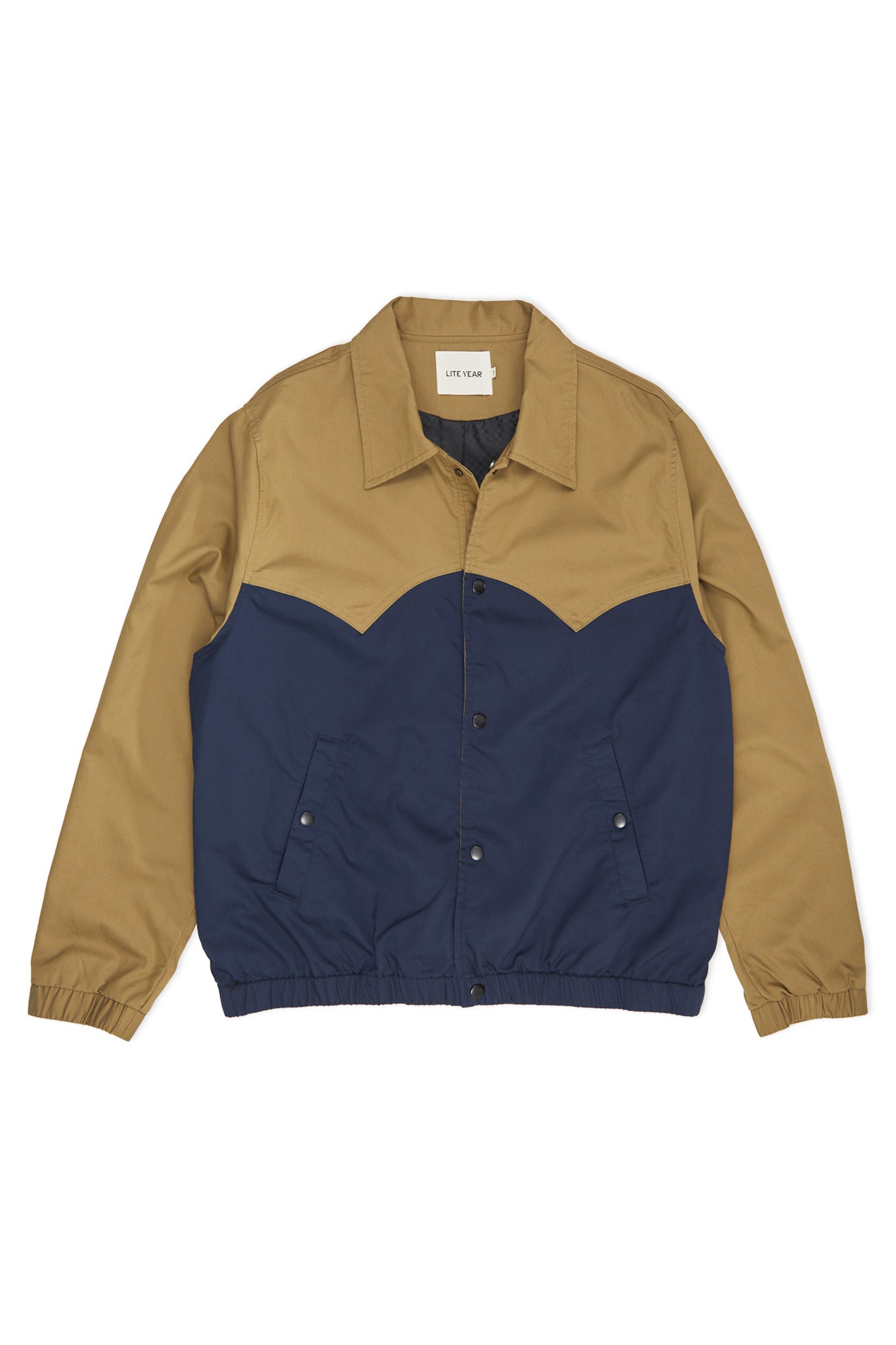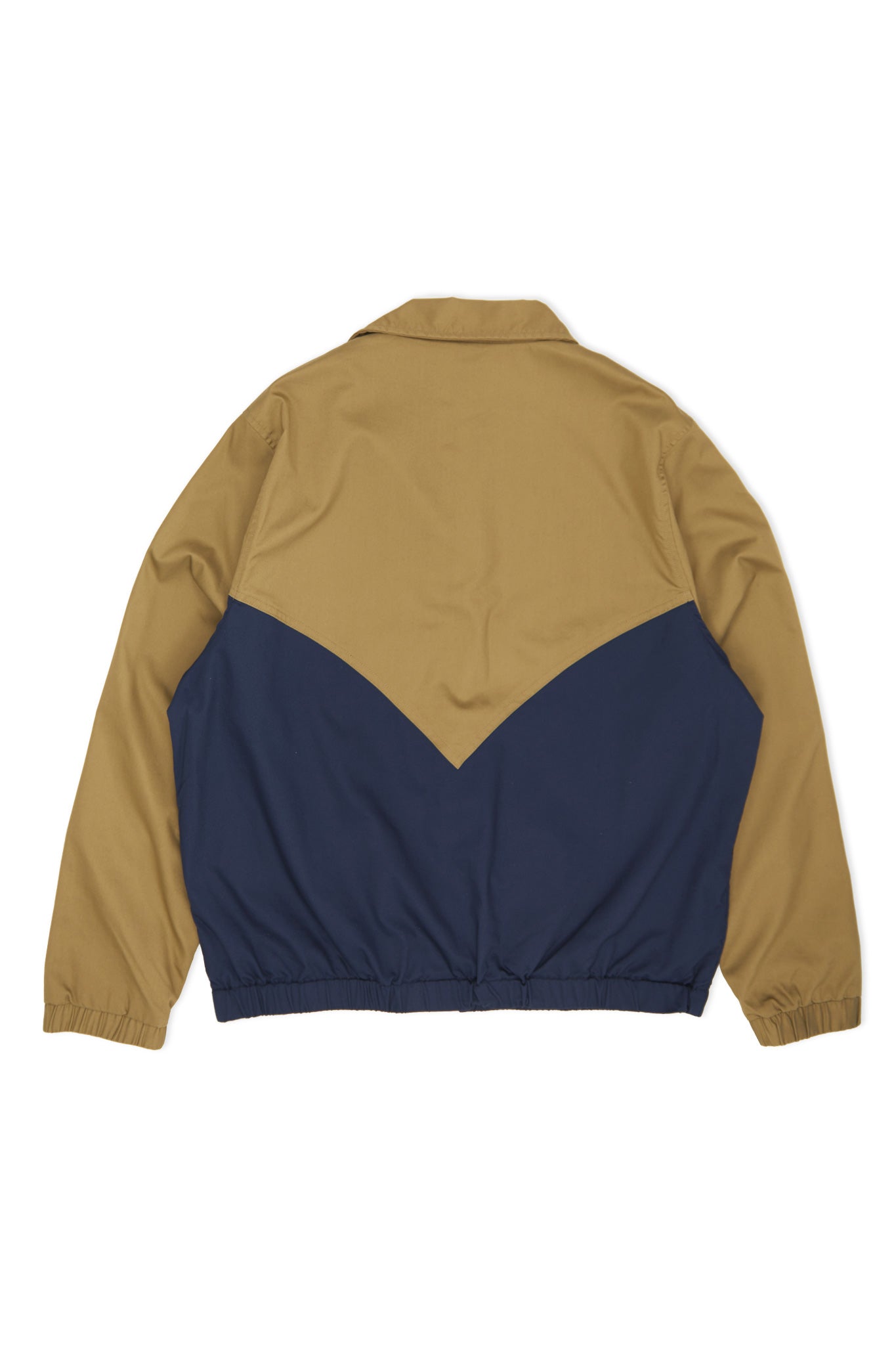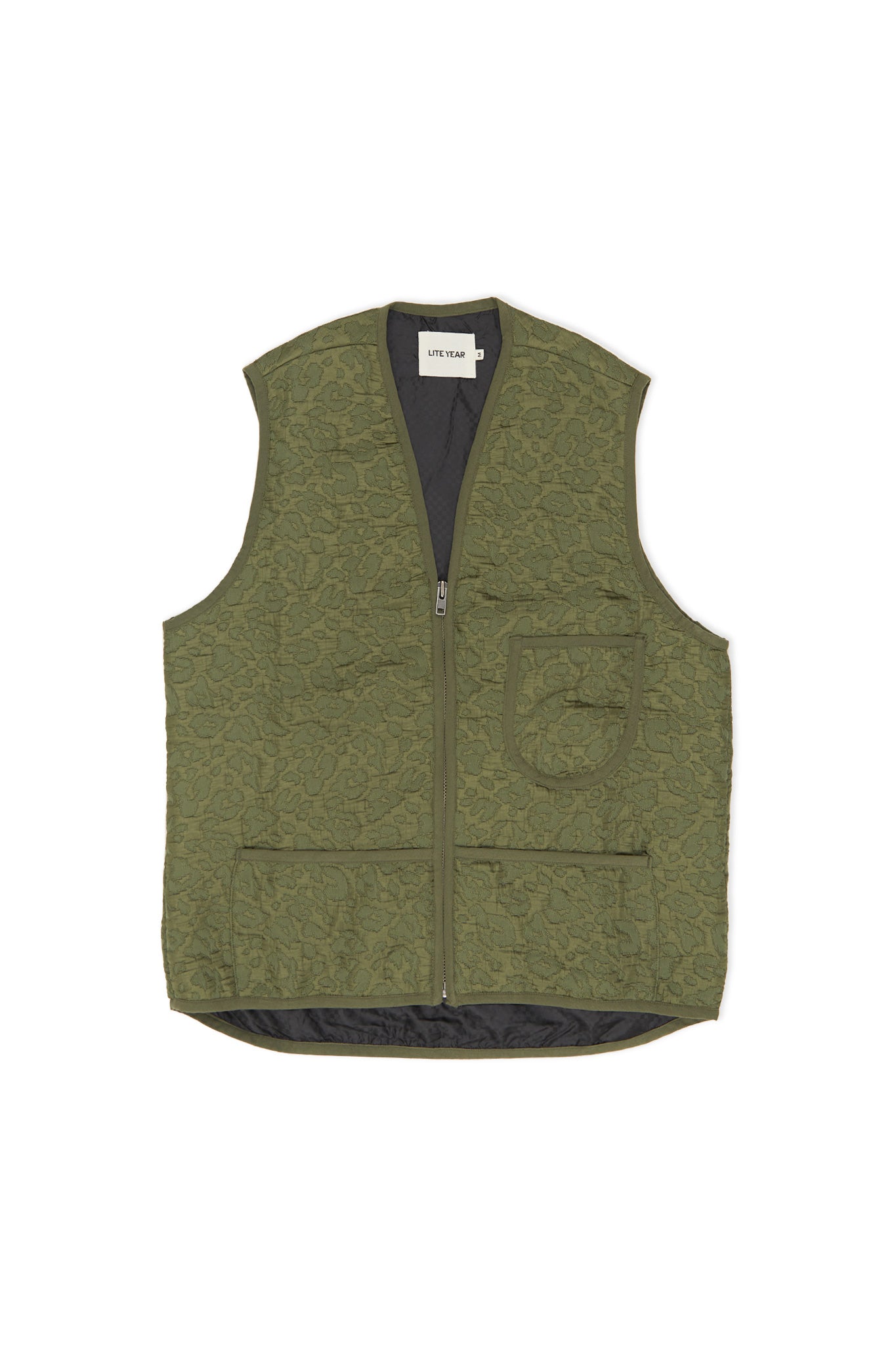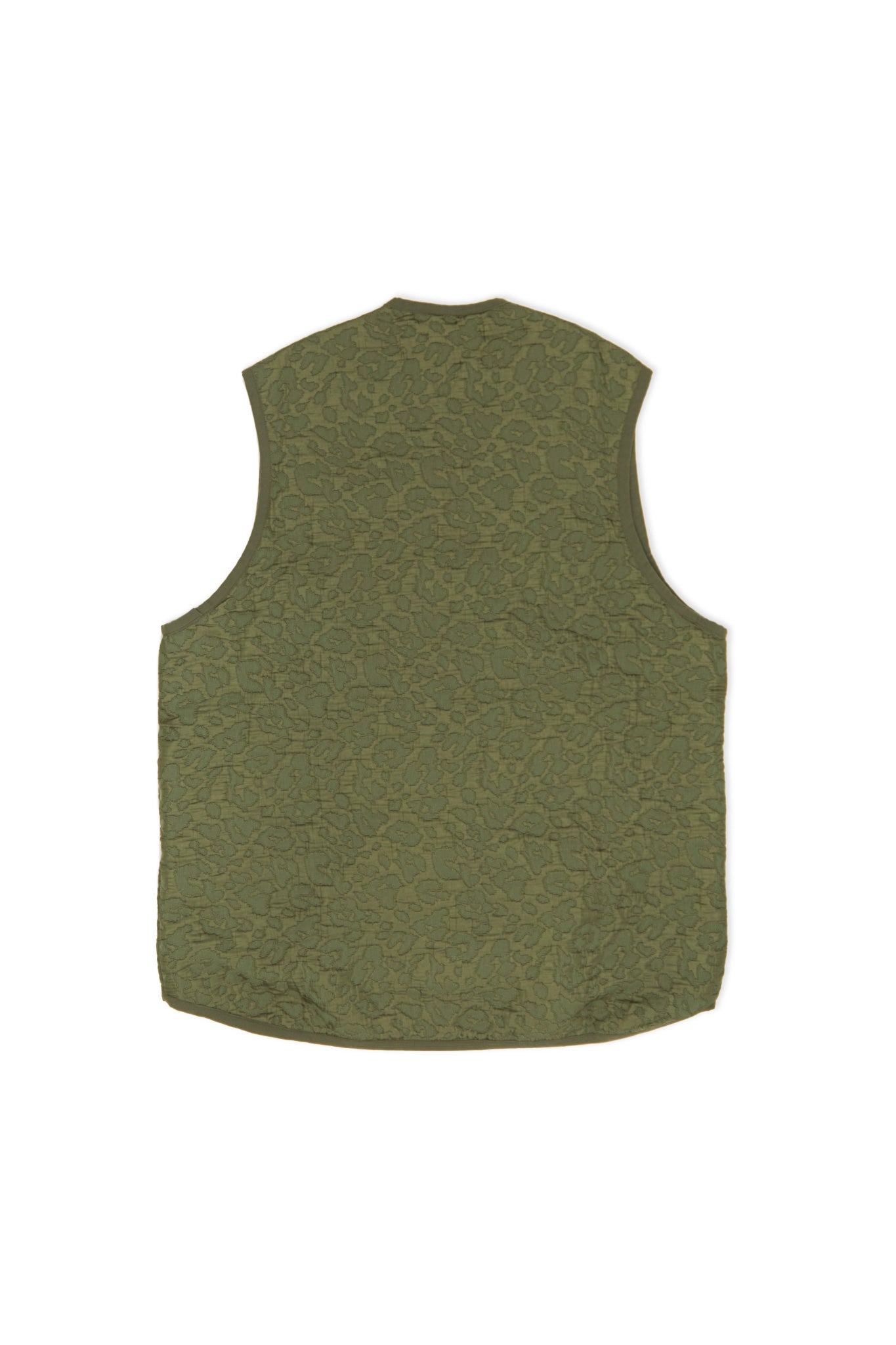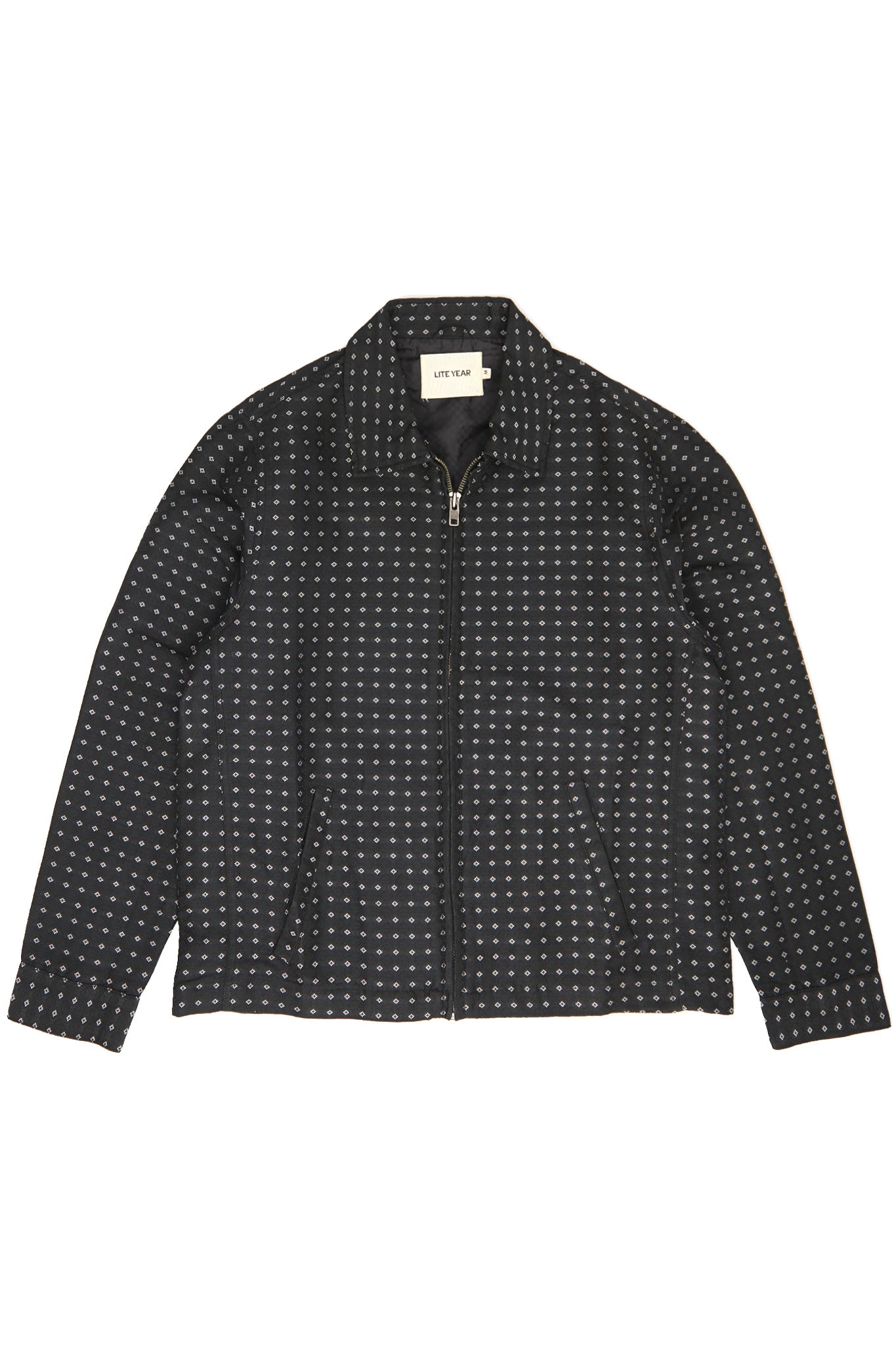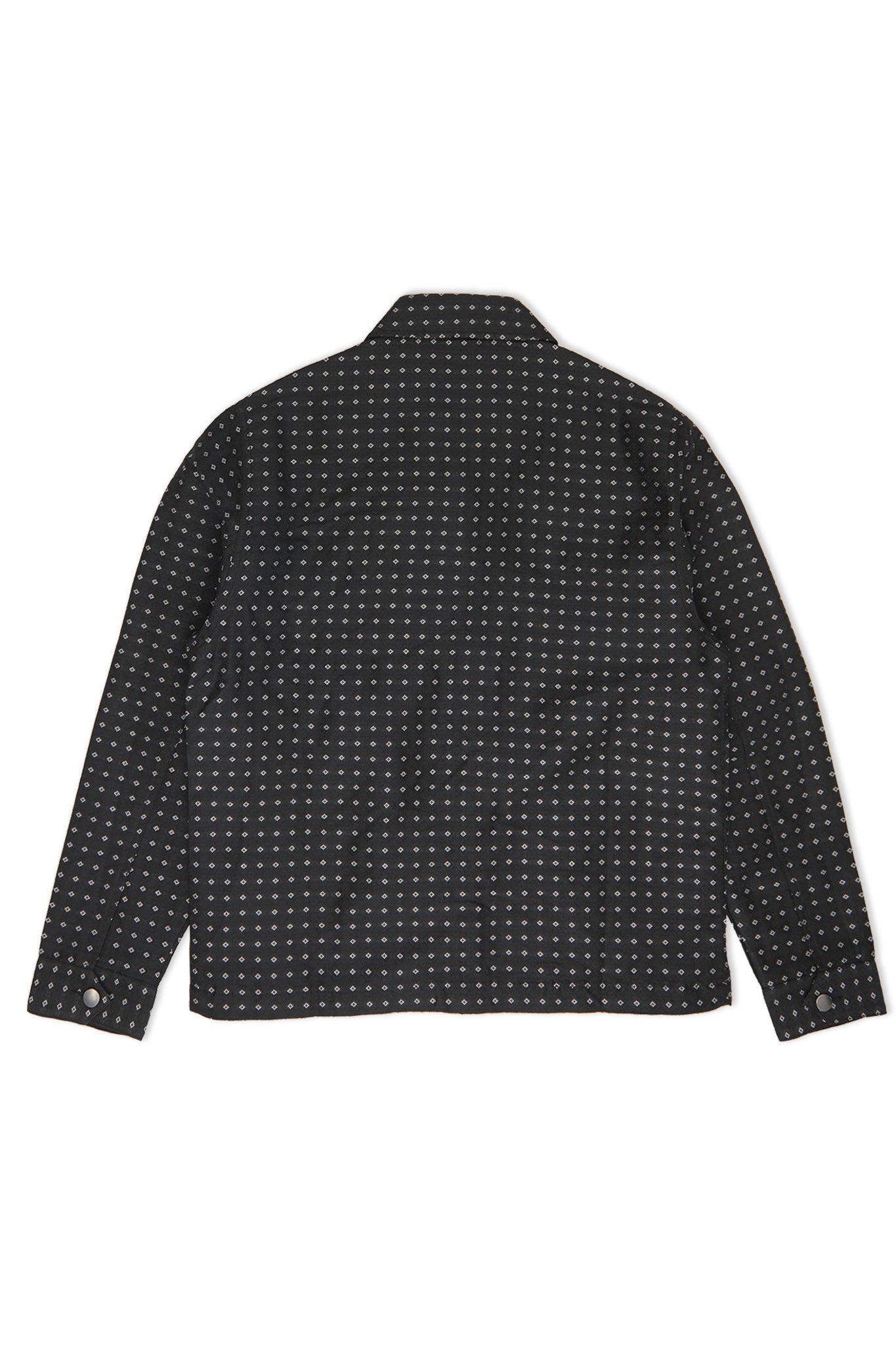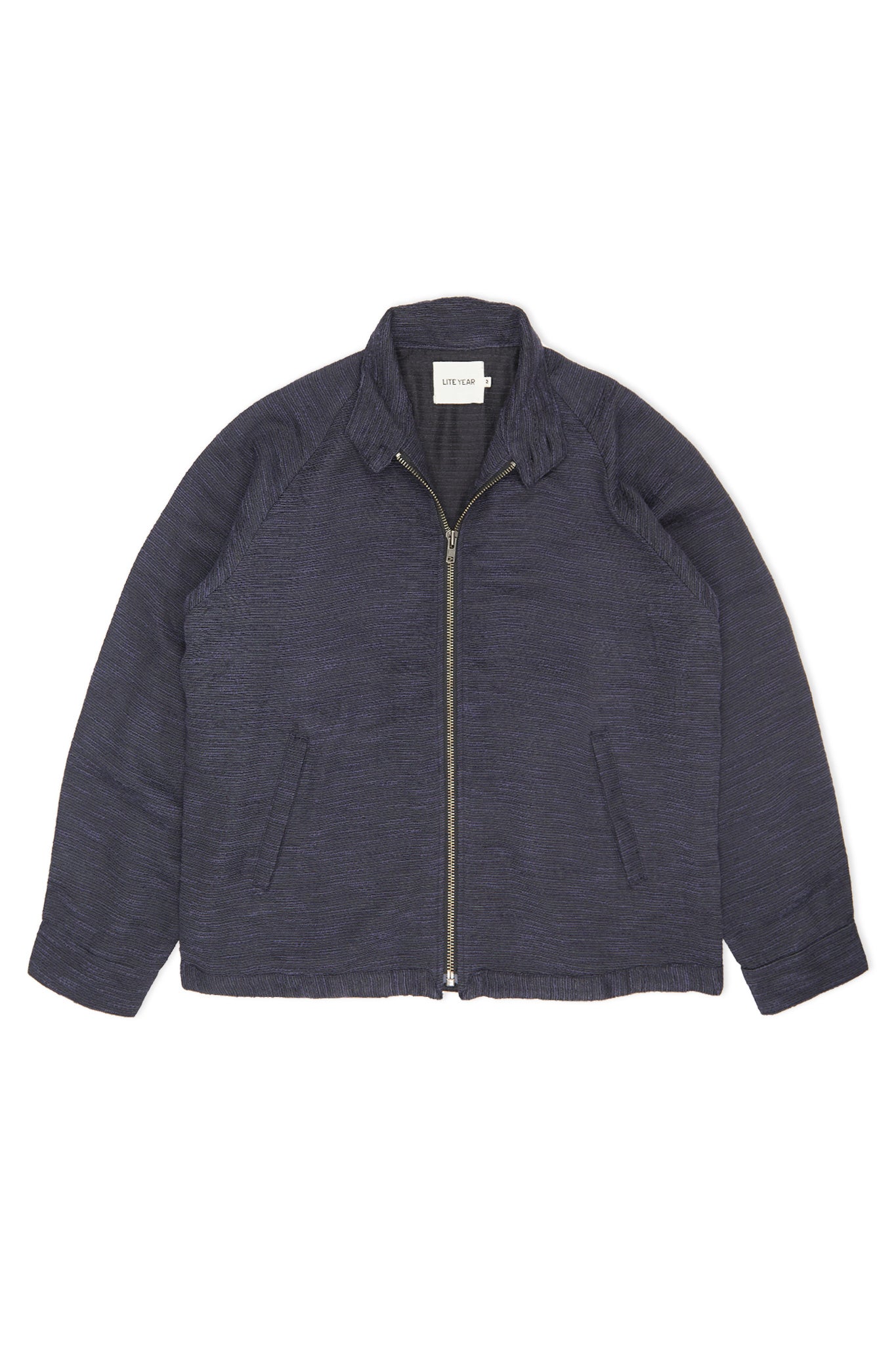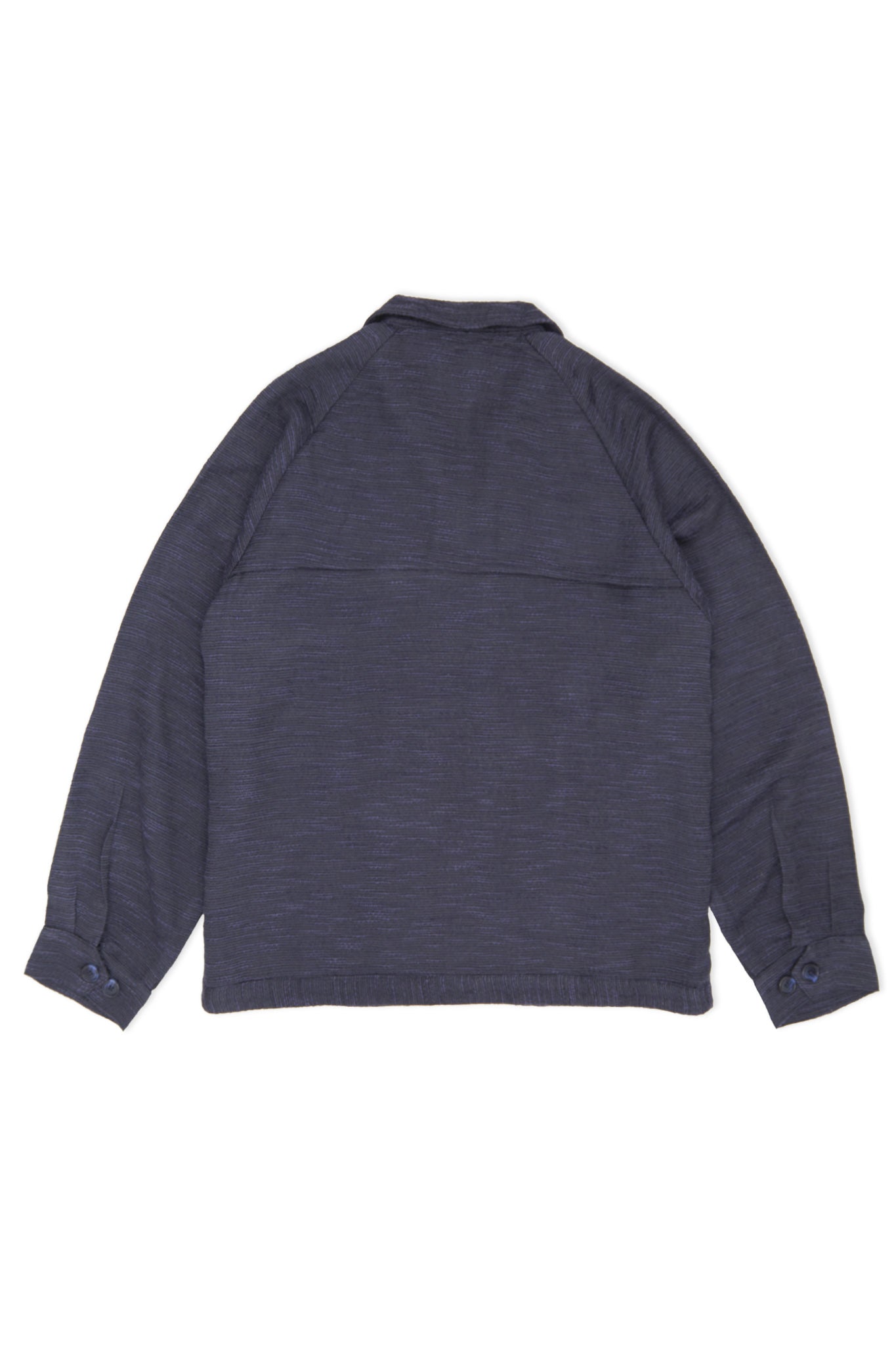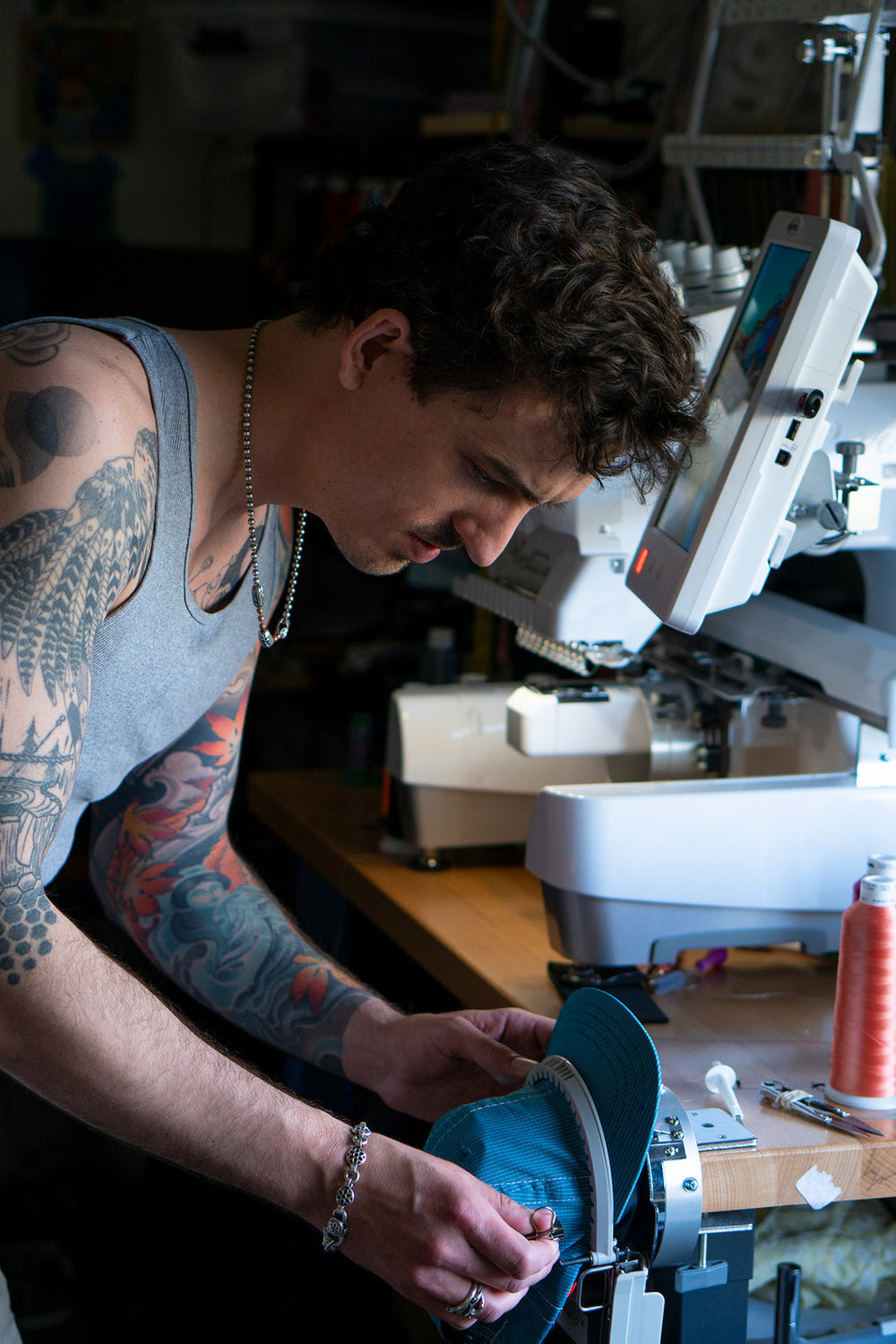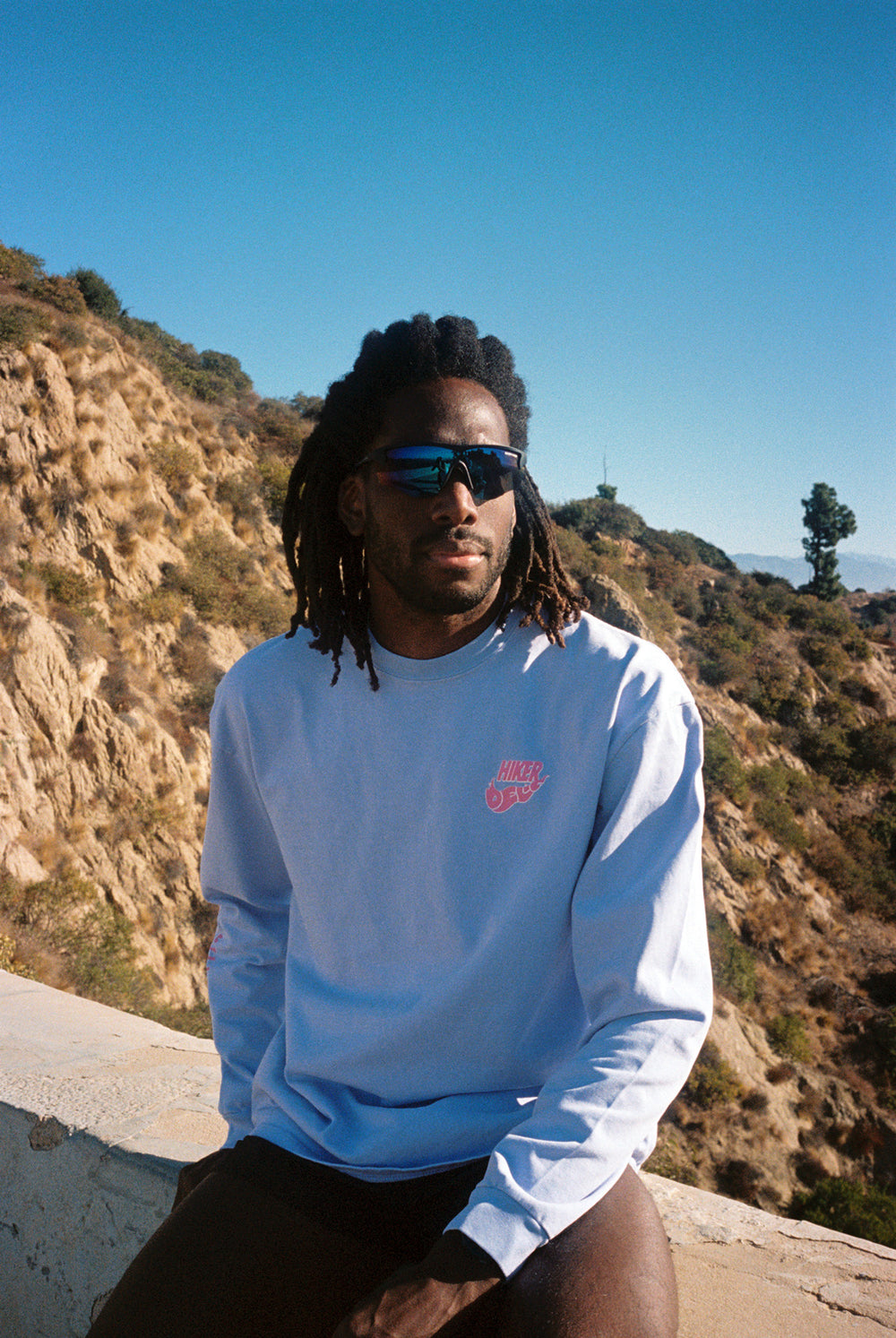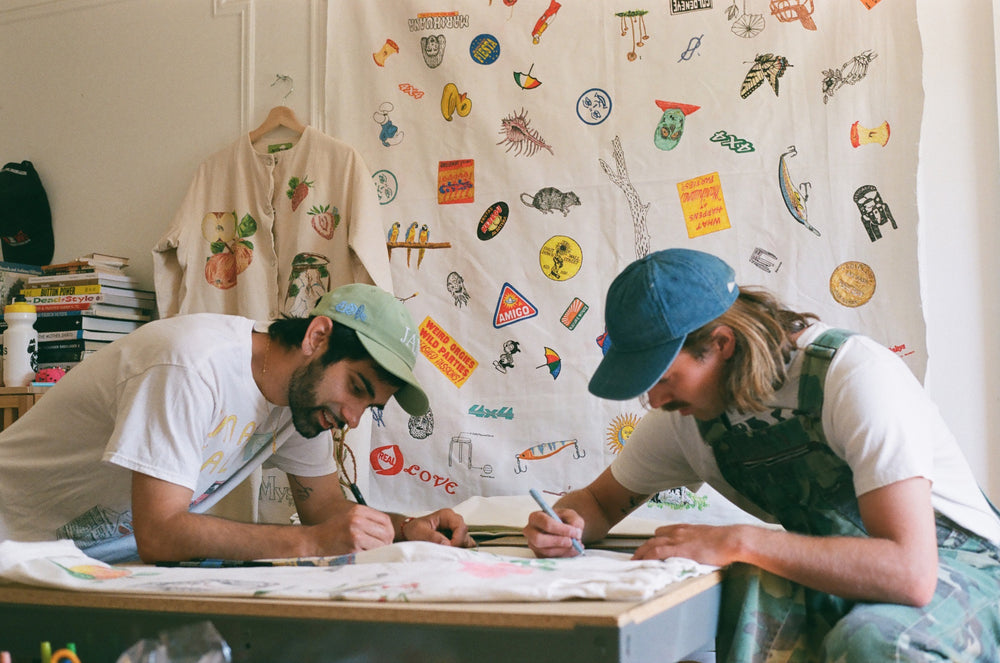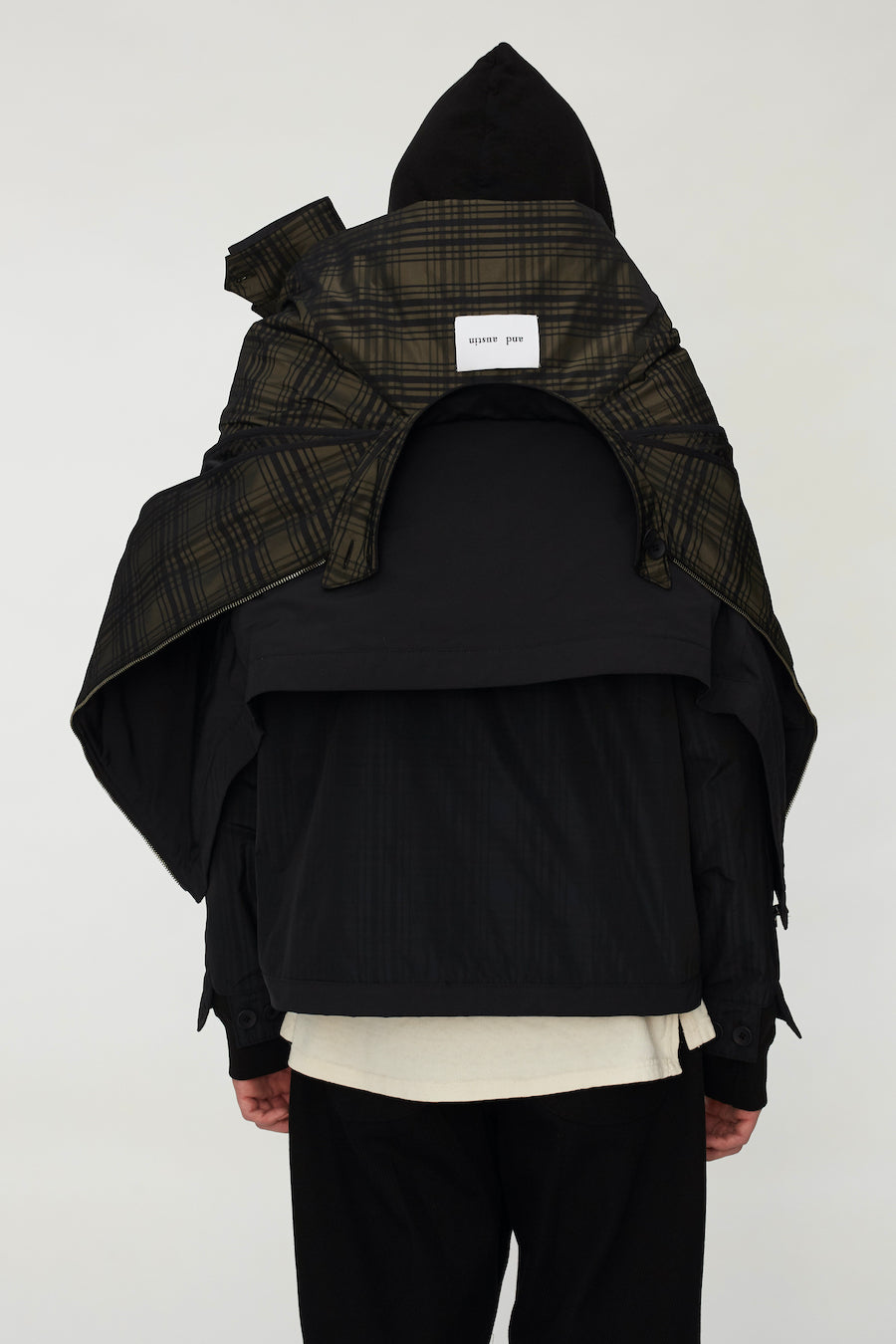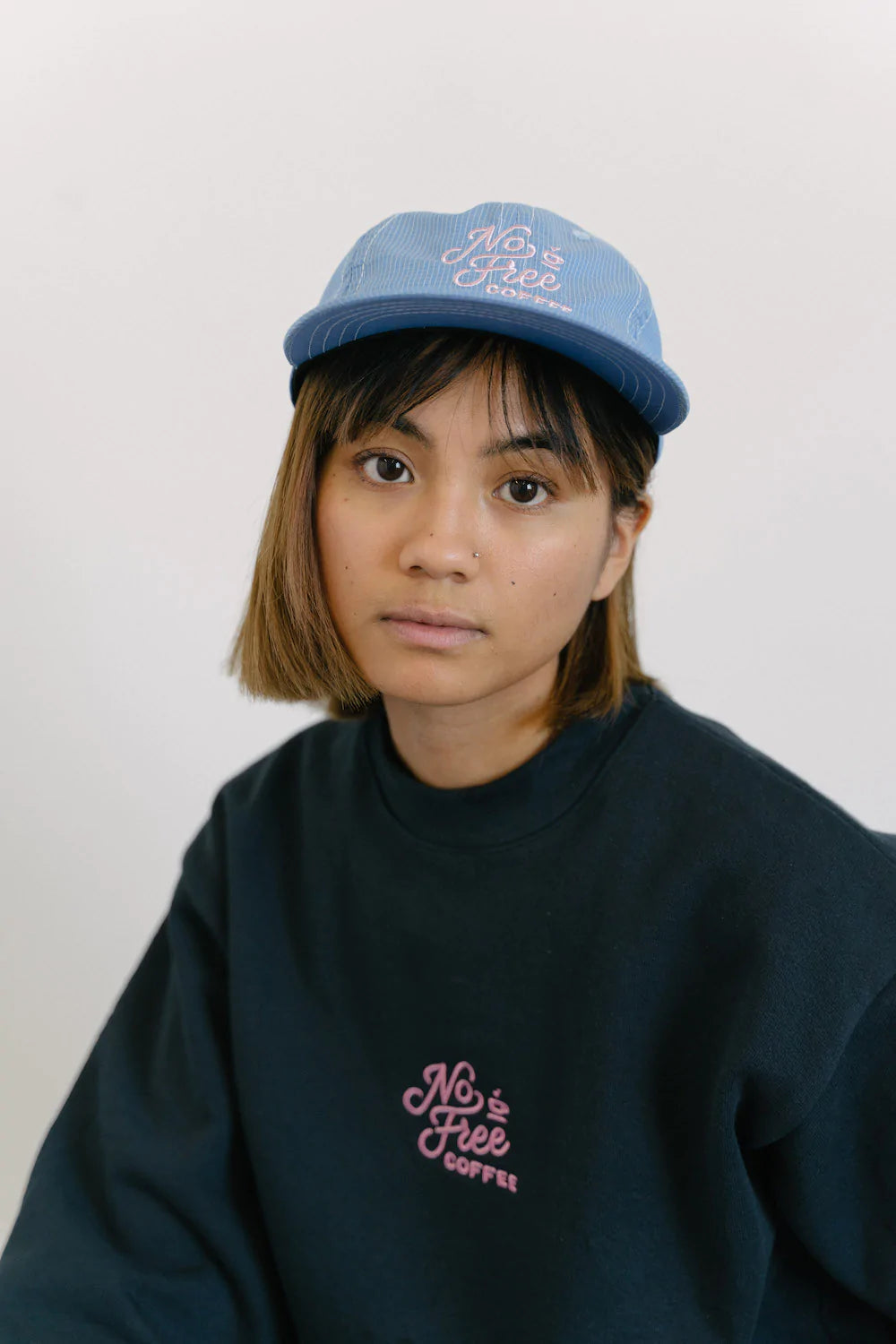Druthers
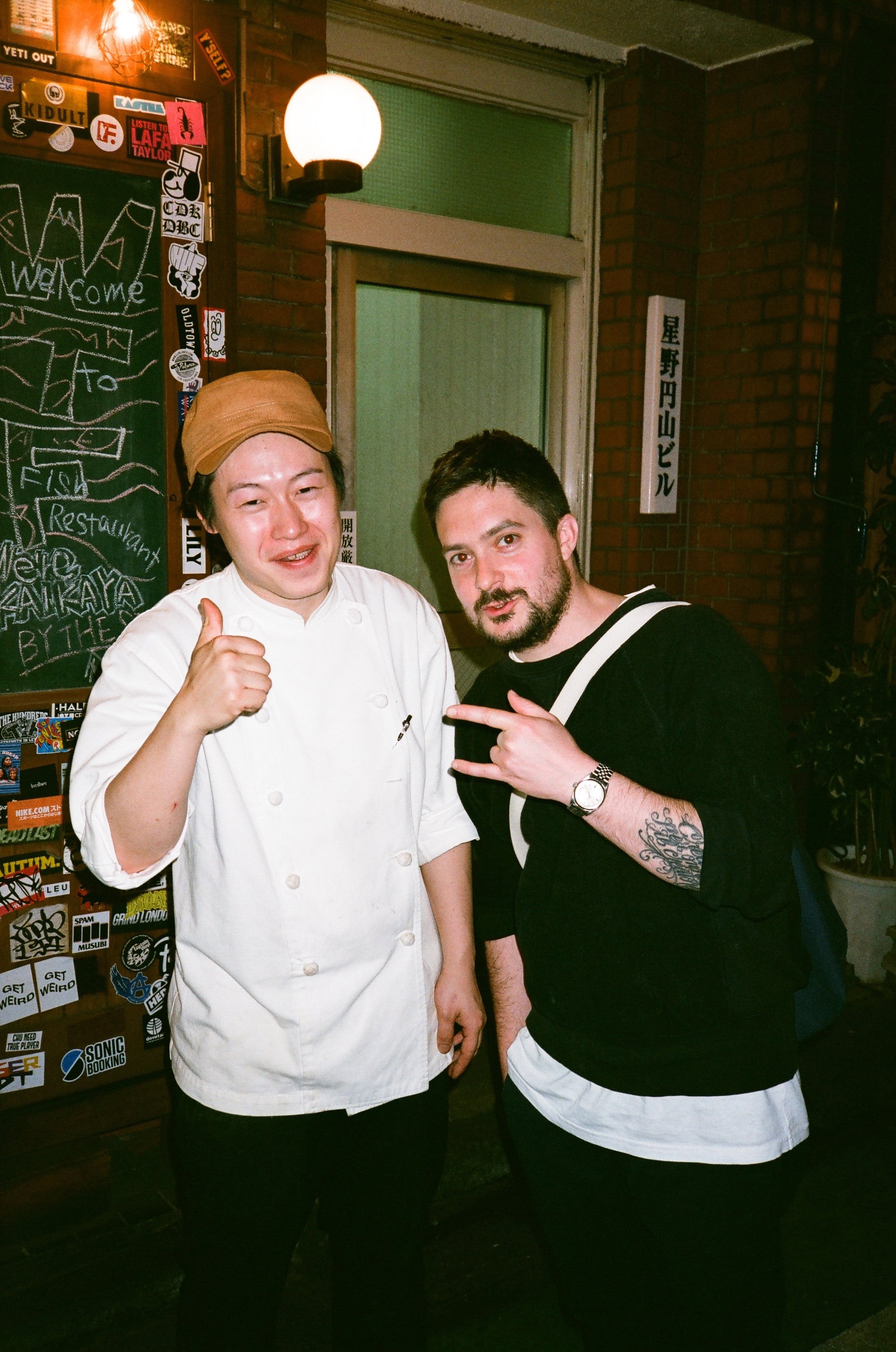
Tell us about yourself, where you’re located, and occupation.
I'm a designer and producer from NYC. Born in the Bronx, lived all over New York, New Jersey, Europe and Asia. Currently living in Chinatown for the last 8 years with my wife, Melissa Ng. I have my hands in a few trades. First and foremost, the founder/design director of a sustainable fashion label called Druthers NYC.
On the side, I help design and produce retail stores, pop-ups, product and special projects for a number of brands. I'm also an apprentice to Swiss carpenter, Andrin Widmer. Andrin is a great friend and one of the best furniture builders out there. It has been super fun learning a new trade in the design space.
Come to think of it, I learned a lot of my design talents from Kimou Meyer over the years (also Swiss) - a lot of good came out of that country in the 80's. In my free time, I'm always working on my cooking and photography - I've had a lot of fun traveling to our factories over the years shooting the workers and facilities.
The best form of sustainability is great quality.

You have 20+ years on your resume, working with various brands behind the scenes in different capacities- ZooYork, Nike, Ralph Lauren, Fool’s Gold Records, Aime Leon Dore, among others - what inspired you to start your own business and develop Druthers?
The main thing was my belief in design for a purpose, not design for the sake of design. With Druthers, I started it with a group of friends many years ago. Very quickly, I felt the lack of focus on great quality basics. There was great stuff out there in the market available with our retailers, but not much. For example, you had a nice beanie or sock by Junya, Norse, or White Mountaineering, but it wasn't the focus. Those were all RTW collections first and foremost with accessories and basics as just SKU additions to the collection.
I thought we could start a clothing brand by first figuring out how to design and build a great assortment of basics and then add on from there. Basically, having a raison d'etre by filling that gap in the market. Then came the quick realization that the brand needed to not only embrace sustainably made products and fair-trade style craftsmanship, but go further and try to continue to push the supply chain in that direction to give other brands more accessibility to sustainability in the future - simple supply & demand style. Et voila, a new brand concept was created...
Another part of the inspiration was just an inherent, and maybe masochistic, need to be an entrepreneur.
I started my design career in 1996 as the owner of Syintific Skateboards with Dust la Rock. Dust and I both also worked at Echo UNLTD. at the time up until the early 2000's. We've always had the need to rough it out with our own business. Dust went on to start Fool's Gold Records with the fam, I went to work for Grotesk at ZooYork. Best times of my life were back then, so it seems only right to keep doing what makes me happy - owning my own business and working on projects with people I look up to and respect.
I can't do the day to day at a fashion design house - the Ralph and Nike years taught me that. Working now in the arts, helping special projects with friends, and continuing the design and build process of Druthers has helped keep me interested still. Additionally, the woodshop apprenticeship has been an amazing contrast to that day to day.
At the moment, I'm still inspired because things stay fresh, interesting, always changing. Today, I'm working on fabric development in Portugal, tomorrow, I'm building out a store in Soho with Andrin. Next week, I'm in Osaka discovering new sustainable yarns and making them into beanies. This change and dichotomy with work is important to me.

Druthers was one of the brands to address sustainability within fashion early on back in 2014. The apparel industry is the 2nd leading cause of waste, why do you feel that it’s taking the industry so long to catch on to do the same?
Thank you for saying that and yes, I agree. There wasn't much out there back then. Patagonia and a few brands have always tried to do a good job at this, but it's few and far between. To your point about the supply back then, I remember working in Tokyo for months every year, trying to commence our product development. You'd ask for organic cotton or recycled yarns and it was a comedic afternoon to follow. There were like 3 cards available in limited colors back in 2013-14.
Now we have volumes of yarn books here at the office! That's why I think a big part of being a brand right now is to be pushing the supply chain. Demand begets supply, so by pushing this along, with some other conscious brands out there, we will get closer to a point where some of the larger brands will be able to use some sort of sustainability in their production as well, and therefore drop some of the non-sustainable supplies. The world wouldn't ever be able to go fully sustainable, not in the near future at least. These processes are not synonymous with large scale business or huge production runs. Sustainability is inherently smaller. But the more the better.
The apparel industry is the second most damaging industry to the planet. Kind of makes sense though since there's probably about 8 billion people in the world and everyone needs clothes...So I think what's taking the fashion industry so long to catch on is because true sustainability is not as profitable, and these brands are first and foremost businesses. Kids out there will buy a Supreme t-shirt if it's organic or not. So why pay more for a product and lower your margins as a business when you don't have to? Especially when that wasn't your intention or part of your mission statement to begin with.
It's not as relevant as the food industry since you aren't ingesting your clothing. Unfortunately, at the end of the day, as much as people talk about sustainability, they are still going to buy Nike's and iPhones, no matter how toxic the sneaker is to make or the silver extraction was for your phone.


You explained it really well to us in the past that often times, clothing labels will promote “eco-friendly” or “environmentally conscious” but may not necessarily be the case 100% of time. For those that do not have a production/design background, can you walk us thru the best approach to creating the best version of a product while staying true to what “sustainable” really means?
Yes, it's true that a lot of brands out there flaunt sustainability as a means to gain sales. It's also great for ecological progress so it's not a bad thing to flaunt. The thing is, I agree with "eco-friendly" and "environmentally conscious", but laugh at the whole dead stock and 0 impact thing. Some people take it a bit too far. This is a great segue into my main thesis about sustainability. The best form of sustainability is great quality.
Let's be honest. Producing clothing is not sustainable. Period. If we are going to make something, let's make it the best quality we can so it lasts super long, and design it with purpose so people want to wear it for years to come. Next, make it organic and next, make it recycled or biodegradable. That's sustainability. Making trend-based cheap fast-fashion shit that's organic doesn't mean it's sustainable.
Sure, you aren't using as many chemicals by going organic, so it's technically more sustainable, but what's the point if we have to re-buy the product every year because it's made with profit in mind and not quality? Also, this “Zero-Impact” fashion concept is bullshit. Nothing is “Zero-Impact”. Maybe walking barefoot is “Zero-Impact” on the planet?
We all have read the articles on the shipping & transport industry, iPhone production, how toxic it is to extract energy and bullion from the earth to make our technology, animal cruelty in fashion and food; what sunscreen does to the oceans…so advertising that you are “Zero-Impact” or heading to “Zero-Impact” while being a product manufacturing business seems laughable, when going to the beach isn't even “Zero-Impact”.
As for upcycling or deadstock production, in fashion it's a double-edged sword. Sure, using pre-existing rolls of fabric instead of producing from scratch seems like a good idea, but that assumes that the business you purchased it from isn't a business. Do you think if Reformation went to a jobber and scooped up all of their deadstock the jobber would just call it quits? No of course not! He/She would look to replenish the deadstock somehow to stay in business. In fact, they might raise their inventories next season to anticipate the sudden demand increase. In this case, the company upcycling isn't owning the supply chain and can't really effect the change.
To me, the best solution is making the best quality product you can and not lying about it as a form of advertising. Built to last. That has to be the first premise in sustainability. My father has a Frigidaire in his garage from the 80's! The new refrigerators are eco-friendly but break every 5 years! They cost more to fix than to just buy a new one. How is it any better to save energy but waste 10x in materials over 3 decades saving the energy?
Unfortunately, the proverbial chewing gum that doesn't lose its flavor isn't a great business model. But it's definitely most sustainable if the product actually sustains a long time. And then yes, make it with non-toxic dyes, and organic cotton long staple yarns, and yarns that are recycled from trash or that are biodegradable, and produced without pesticides, etc. This helps the supply chain and the planet.
Druthers does its best to produce our products with the highest % of sustainable yarns we can and support growers and factories doing the same. We also use non sustainable yarns though too, if it supports a higher quality end product. It's important to create a balance so that the design is there but the functionality and longevity of the product isn't compromised.
For instance, we mix spandex and biodegradable nylon in our briefs, beanies, and socks for retention value and to help make the product last longer. Spandex isn't a sustainable yarn but it helps the length of the product's life-cycle so it's important to make that decision. Biodegradable nylon is better than non-biodegradable, but it still has to be filamented into yarn which uses energy, right?
In these cases, using non-sustainable yarns can be more ancillary than harmful over a long time period. The issue is that I work in the clothing industry, so I design and make clothes. I didn't go to school to be a doctor... so I'm stuck making a product which is in and of itself adding to the global consumption problem. Unfortunately, it's what I do for a living, but fortunately, I try my best to keep pushing the envelope on what yarns we can use and how to better the design, supply chain, factories, and longevity of the product we give you.

There’s a lot involved in development and production. You work with various factories around the world. How do you decide what gets produced in Osaka, Tokyo, Portugal, USA. Is there a thought process involved in location with garment production?
This one is a lot simpler. Druthers does it's best to work with the best quality craftsmen in the world. We decided to make socks in Tokyo because that's where we found the best makers and yarns. Hats went to Osaka because of the same reason. Sweater knits are made in the USA. CMT and the rest varies based on the vendor. We've done cut and sew products in Japan, NYC, Saigon, and Portugal. Unfortunately, the garment district in NY is dying down after the zoning law changed, but there are still super good, clean, fair trade facilities in amazing parts of the world that have great craftsmanship. I think we will always be searching for great makers.

Covid-19 has taken a hit on New Yorkers with many long-time residents leaving the city. As a Bronx-born native who’s seen the highs and lows of the city, how do you feel about the exodus recently and how does that effect the creative community that’s left behind?
I think it's a yin and yang. No ups without downs etc. A lot of people are leaving and unfortunately a lot of businesses are too. Some great spots are closing, and some bad ones. But I'm a firm believer that just like in the past, we will see things normalize again, and then catalyze.
We were saying internally back in March-April, that the pandemic would accelerate the inevitable. Meaning that if a trend was in place, such as shopping online, this year would push it forward. If an antiquated chain of stores was barely making ends meet, this would be the nail in their proverbial coffin. So far, that is proving to be true but I think the upside with this pandemic, while closing so many doors, opens the window for newness to come in its place.
New people will move into NYC to take the place of the ones that left for the suburbs and new, great businesses will start to pop up again to take the place of the ones that closed. This is how it's always been and will continue to be, it's just that now the pandemic is accelerating this trend and adding big volume to the numbers. That means eventually there will be a big volume of newness!

If you had a 2020 re-do what would it look like?
Nothing here. No looking back or regretting the past. Any gains should be shared and enjoyed with the ones you love. Any mistakes are learning opportunities and reasons to change for the better. If I never learned from all the mistakes I made in the past, I'd be dumb as the day is long.
Definitely looking forward to 2021 though! Wishing the best for everyone out there right now. Keep fighting through it.


